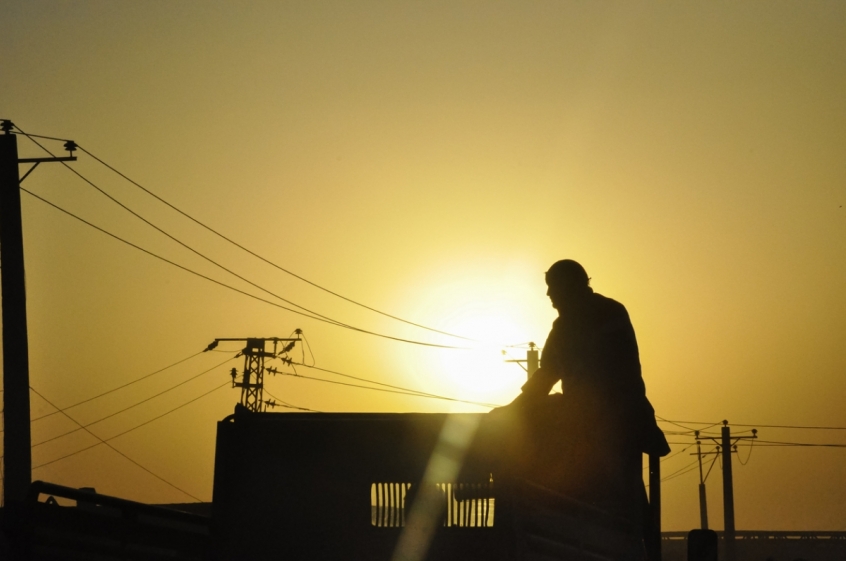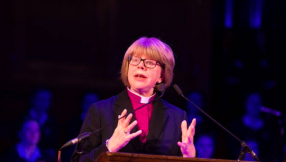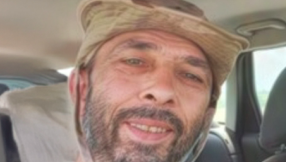
Sharifullah* is a traditional craftsman in Afghanistan. He is also a Christian who, out of necessity, keeps his faith a secret to all but a few.
He leads a small community of fellow Christians, many of whom he has trained to work side-by-side with him in his workshop.
They have spent many years turning sketches and ancient designs into beautiful artwork – a way they believed they could covertly share their faith.
"So often we would find birds to represent the Holy Spirit and freedom, sheep to represent us, and roses to represent Jesus," Sharifullah says. "Sometimes, there are even crosses hidden and woven into our designs."
Throughout the last two decades, the spectre of the Taliban's return has always hung over them. Despite the dangers, they have continued their secret ministry.
When the Taliban took charge of the country in August, Sharifullah's work came to a standstill.
"Six months ago, the Taliban marched in," he recalls. "Within weeks, many artisan shops in the capital were warned about the designs being used in the crafts on display.
"The Taliban want their ideology reflected everywhere. All signs of colour, life and hope have been erased - painted over and replaced with Taliban slogans.
"We saw men climb ladders and paint anything that was beautiful and hopeful," he sighs. Everything beautiful is considered 'murtid' (apostate) and filthy - a 'friend of the West' and of the unbeliever or 'Kafir'.
"The Taliban are killing our souls and spirits. They don't have to shoot us for this to be painful and hard. They are killing the souls of our children by taking all that is beautiful away from them."
Sharifullah's business is temporarily closed, but even as the Taliban wipe out memories of beauty, Sharifullah and his co-workers are committed to continuing their work in some way.
"They may try to stop us, but I have this hope, since we have trained so many people to create beautiful things. I doubt we can stop the movement of beauty and hope that has begun. We have given the most vulnerable people skills that allow them to use their imaginations and create," the artist says.
Following the Taliban takeover, Afghanistan became number 1 on Open Doors 2022 World Watch List, a ranking of 50 countries where it is most dangerous to be a Christian.
Almost all Afghan Christians are converts from Islam and are not able to practise their faith openly. With the Taliban takeover, the pressure on Christian converts has grown exponentially, so many of them have gone into hiding in remote rural areas or fled the country.
The Open Doors' field expert says for Christian converts who remain in Afghanistan there is no option other than to 'play the role of a Muslim'. If a Christian woman chooses not to wear a head-covering she will draw unwanted attention. If discovered, Christian converts will face harsh punishment as leaving Islam is punished by death.
Sharifullah's most immediate concern is his brother-in-law, whom he fears could be a Taliban sympathiser. He says: "My wife is a very good artist, and her brother used to come and destroy all her paintings to hurt her. He used to tell us: 'You are too free with your lives. One day the Taliban will come back and it will be better for you that you destroy all this.' Now, that day has come.
"I pray that he will not be tempted to set our work on fire, and God will keep him away."
He talks about his family's conversion to Christianity: "Jesus came to us in a dream and opened up our imagination. It is a door that has been opened that can never be shut. We will never let that hope be silenced."
*name changed for security reasons
Ben Cohen is the head of media and PR at Open Doors UK & Ireland, part of Open Doors International, a global NGO network which has supported and strengthened persecuted Christians for over 60 years and works in over 60 countries. The charity provides practical support to persecuted Christians such as food, medicines, trauma care, legal assistance, safe houses and schools, as well as spiritual support through Christian literature, training and resources.













